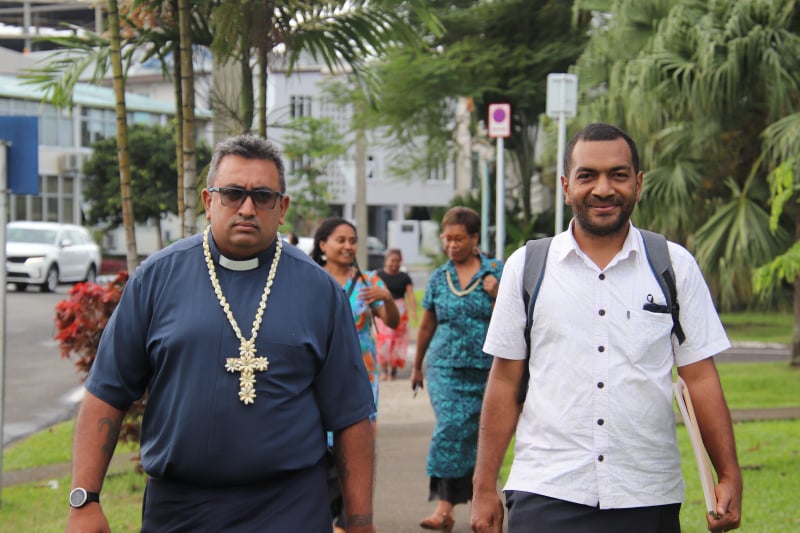Endorsing the 2050 Strategy is one thing, implementation is another, the work begins now

Accountability, risk management and localisation are key to the successful implementation of the Pacific 2050 Strategy, CSO representatives told Pacific Leaders earlier this week.
CSO representatives; Rev James Bhagwan of the Pacific Council of Churches (PCC) and Vani Catanasiga the Executive Director of Fiji Council of Social Services (FCOSS) told leaders at the closed dialogue that these were important if their vision was to be realised by 2050.
 Pacific Council of Churches (PCC), Rev James Bhagwan (left) and PIANGO Deputy Executive Director, Josaia Jirauni.
Pacific Council of Churches (PCC), Rev James Bhagwan (left) and PIANGO Deputy Executive Director, Josaia Jirauni.
Catanasiga added that leaders should prioritised the creation of regional development cooperation framework driven by Pacific values and principles which should then be cascaded down to the national levels.
“A framework or compact of this nature helps us to determine how financing and technical support for the implementation can be done, it determines approaches and ensures the independence of PICs
whilst receiving support for the operationalization of the Strategy,” Catanasiga said.
She also stressed to the leaders that development partners must support NSAs to engage in national and local systems as opposed to creating alternative systems that often confuse and disrupt local communities’ long term resilience and wellbeing.
Bhagwan acknowledged the Forum’s Chair comments on the centrality of COSs and Pacific States in the development of the 2050 Strategy and the Non State Actors in the regional need for inclusion.
He used an example of the campaign by Pacific Islands Students Fighting Climate Change IPSFCC and endorsed by International Court of Justice Advisory Opinion now brought by Vanuatu to the Leaders meeting.
“The level of CSO engagement in the 2050 Strategy process bears witness to our common ownership of this Strategy- this is not just a strategy, this is our strategy,”Bhagwan said .
The inclusion of Civil Society and Private Sector in the regional architecture is necessary both at the regional and nation level for this Strategy to work
PIANGO Deputy Executive Director Josaia Jirauni said meaningful engagement of civil society actors in the development of the Pacific 2050 Strategy recognises that the formal engagement of civil society is critical and should be inclusive as we journey together to achieve the aspirations of the 2050 Strategy.
“At the outset, Pacific CSOs called for deeper and meaningful partnerships based on trust and mutuality between governments and civil society sectors in the region.” Jirauni said.
Jirauni said, endorsing the 2050 Strategy is one thing, implementation is another and the work begins now.
